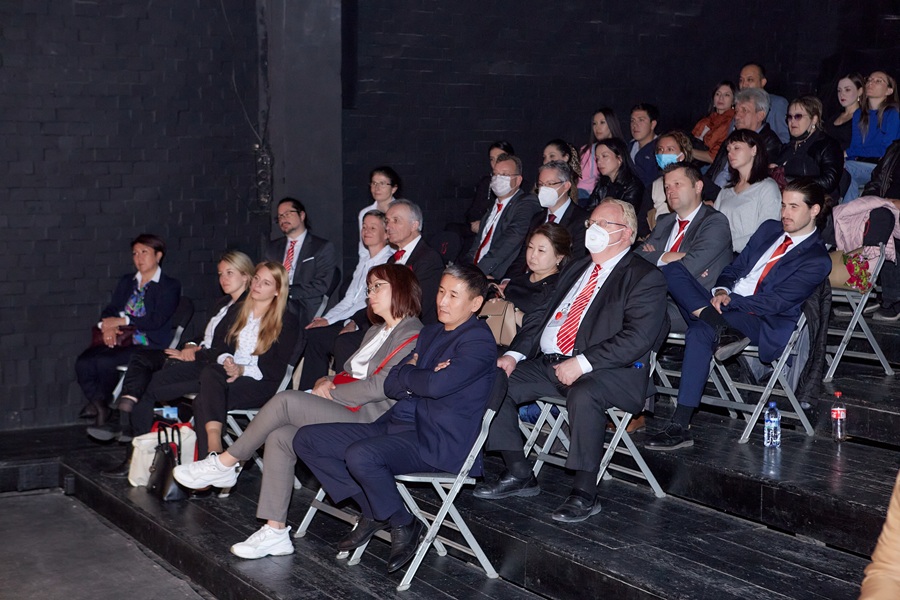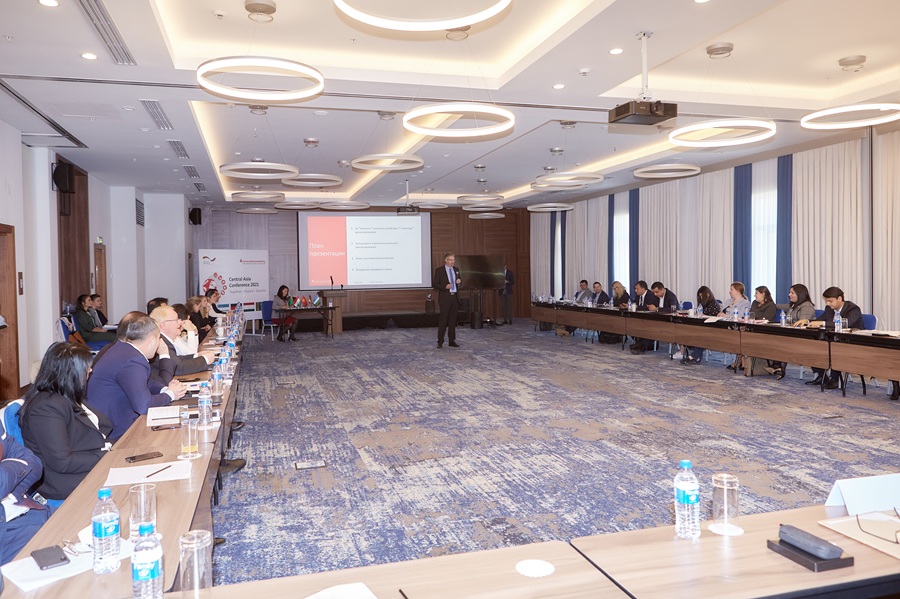Our partners from Kyrgyzstan, Tajikistan, Uzbekistan, and Germany accepted our invitation to Tashkent for the VI Central Asia Conference. The focus was on current project development and setting a joint path for the future.
During the thematic days on "Inclusion", "Economic Development" and "Climate", the partners and we learned new and exciting facts. International experts accompanied the conference and shared their expertise, which allowed us to think outside the box.
The theme day "Inclusion" focused on the inclusion of people with disabilities and creating adequate access to financial services for people from all walks of life. This is one of the main objectives of our project work. Above all, inclusion means consistent thinking and acting from the customers' point of view. At a time when the financial sector is in a state of transition, it is the customers who decide on its future. Inclusion is a question of mindset. This also applies to the equal participation of people with disabilities in society. People are not disabled because of their individual physical bodies but are disabled - by visible and invisible barriers.
"Economic development" accompanied us on the second of the three conference days in Uzbekistan. South of Tashkent lies one of the pilot regions of the German Sparkassenstiftung's rural development project in Uzbekistan. Similar to the regional project, it combines the professionalisation of banking services with the improvement of entrepreneurial and financial literacy. 2,178 young adults from the agricultural sector have successfully completed the literacy programs at the Youth Union's education centers in Nurafshan and Jizzax. Three of them invited us to visit their small businesses. This gave us a first-hand experience of how the joint project work is bearing fruit.
The last day of the conference was dedicated to the topic "Climate". It answered the question of what kind of world we will live in tomorrow. Dr. Bijan Fallah from the Potsdam Institute for Climate Impact Research showed how the climate in Central Asia will change if the world doesn't act immediately. He explained the scientific models on which the forecasts are based. In the future, the financial sector will have to evaluate the security of investments also under environmental aspects. Prof. Dr. Peylo from Kempten University of Applied Sciences has developed a holistic action plan with a corresponding scoring model. It supplements the classic scoring for risk analysis with the aspects of the environment, social issues, and corporate governance.
We would like to thank all participants of this year's Central Asia Conference for their engagement and ideas. Meeting in person after a long period of video conferences and webinars was particularly valuable and inspiring for everyone. This exchange of ideas and experiences, as well as the joint engagement on important topics, will further strengthen the cooperation of partners and project teams in Central Asia.
More information about the Central Asia Conference in Uzbekistan can be found here:
Newsletter_042021.pdf (sparkassenstiftung-centralasia.org) German
Newsletter_042021_ru.pdf (sparkassenstiftung-centralasia.org) Russian




